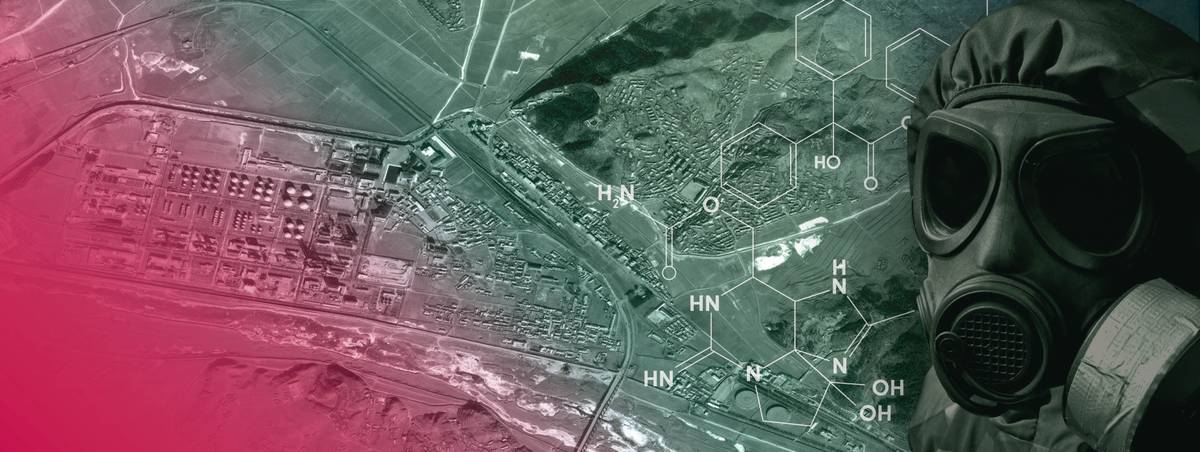Project Anthracite: Assessing the Chemical Weapons Capability of the DPRK
This project uses open source tools to analyse North Korea’s chemical industry, examining the extent to which it can support a chemical weapons programme.
The 2017 assassination of North Korean leader Kim Jong-un’s half-brother in a Malaysian airport with the chemical nerve agent VX, an attack widely linked to the regime in Pyongyang, drew international attention to the topic of North Korea’s chemical weapons capabilities. A number of countries, including G7 states, have assessed that North Korea has a chemical weapons programme, posing a threat to regional and global security.
Project Anthracite, a three-year project run by RUSI’s Proliferation and Nuclear Policy team and funded by Global Affairs Canada, seeks to provide a new and unique open source assessment of North Korea’s chemical weapons capability.
Using remote sensing technologies and other open source tools, RUSI researchers are conducting a review of key facilities to produce a networked overview of the country’s chemical industry. This will inform an assessment of North Korea’s chemical weapons production potential.
Project sponsor
Global Affairs Canada
Global Affairs Canada define, shape and advance Canada’s interests and values in a complex global environment. We manage diplomatic relations, promote international trade and provide consular support. We lead international development, humanitarian, and peace and security assistance efforts. We also contribute to national security and the development of international law.
Find out more
Aims and objectives
Project Anthracite builds on a feasibility study published by RUSI and Dstl in March 2022, which concluded that open source tools could help to understand North Korea’s chemical industry, allowing hypotheses about chemical weapons production to be developed and refined.
Following the identification of all sites of potential relevance in North Korea – from chemical facilities to research centres and alleged dual-use sites – we are profiling these sites, seeking to understand their role in North Korea’s chemical industry and identifying any potential links to chemical weapons production.
The project team is conducting detailed satellite imagery analysis to understand more about site features. Parallel analysis of open source data seeks to identify patterns of activity. Site profiles investigate chemical processes on-site, as well. As we gradually analyse more installations, we will build up a comprehensive picture of North Korea’s industrial chemical capability.
As Project Anthracite progresses, we will produce an interactive map based on our database showing alleged links to chemical weapons production in North Korea.
Site profiles
View the site profiles that have been analysed by our experts.

Project Anthracite has identified a number of chemical sites within North Korea. Use this interactive tool to explore the variety of sites in more detail. Please note that it is a work in progress and will continue evolving until the project's conclusion in the spring of 2026.
Technical assessments
Project team
Lennie Phillips OBE
Senior Research Fellow, Chemical Weapons
Proliferation and Nuclear Policy
Jack Crawford
Research Fellow
Proliferation and Nuclear Policy
Mar Casas Cachinero
Programme Manager
Proliferation and Nuclear Policy
Fellows
Air Vice-Marshal Sean Corbett CB MBE
RUSI Senior Associate Fellow, Military Sciences
Professor David Crouch
RUSI Senior Associate Fellow, Proliferation and Nuclear Policy
Gareth Williams
RUSI Senior Associate Fellow, Proliferation and Nuclear Policy
Dr Giangiuseppe Pili
RUSI Associate Fellow, Proliferation and Nuclear Policy
Project partners
Hailey Wingo, Researcher, Verification and Monitoring, VERTIC
Dr Grant Christopher, Co-Programme Director, Verification and Monitoring, VERTIC
Alberto Muti, Co-Programme Director, Verification and Monitoring, VERTIC
External team members
Stephen Mercado, Independent Contractor
Yuseong Choi, Independent Contractor
Nathan J Hunt, Independent Contractor
Latest publications
View the latest publications on North Korea's chemical weapons capability.
Loading results...















